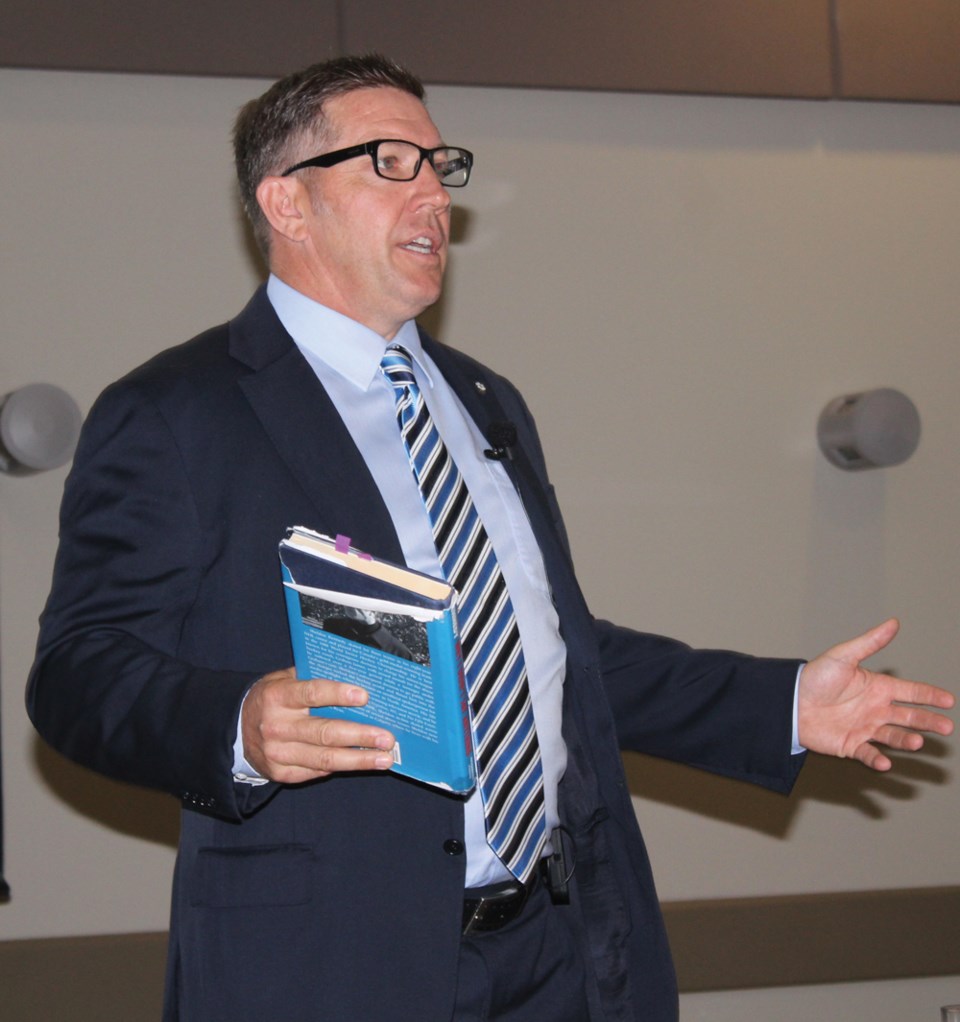A warm greeting and two standing ovations welcomed Sheldon Kennedy to Virden as the former hockey player and now child advocate addressed teachers and staff of Fort La Bosse School Division.
They gathered at Tundra Oil & Gas Place on Tuesday for a professional development half-day that had one special guest on the agenda: the man who shook the hockey world in 1996 by revealing the sexual abuse he endured from his coach Graham James for many years.
Kennedy, born in Brandon and raised in Elkhorn, was in town to talk to teachers in his home school division about their role in spotting and stopping child abuse.
Kennedy assured the rapt audience that what happened to him is “not a hockey problem and not an isolated case.”
He said one in three Canadians were abused as children, the vast majority by someone they knew. The stereotype of the mysterious stranger driving a van around school zones is a flawed one that allows the real perpetrators like Graham James to hide in plain sight for too long.
In a study quoted by Kennedy, 95 per cent of kids said coaches have the most influence on them, far more than parents or teachers. And that much power can be misused so easily and go unreported for a long time, unless someone close to the child recognizes the signs of trauma.
Kennedy is the author of the autobiography Why I Didn’t Say Anything. He’s raised money for anti-child abuse programs and sits on the board of the Sheldon Kennedy Child Advocacy Centre in Calgary.
The Centre employs 120 professionals from police, health services, child and family services and education. These agencies work together to assess, treat and seek justice for physically and sexually abused children.
Kennedy says the 8,000+ they’ve helped so far is only 15 per cent of the total. “The rest are in our schools. So how do we as teachers deal with these kids?”
He points to “trauma-informed care” to help educators and caregivers recognize the signs of abuse and know how to respond to them.
“Because you may be the only safe person this kid knows.”




